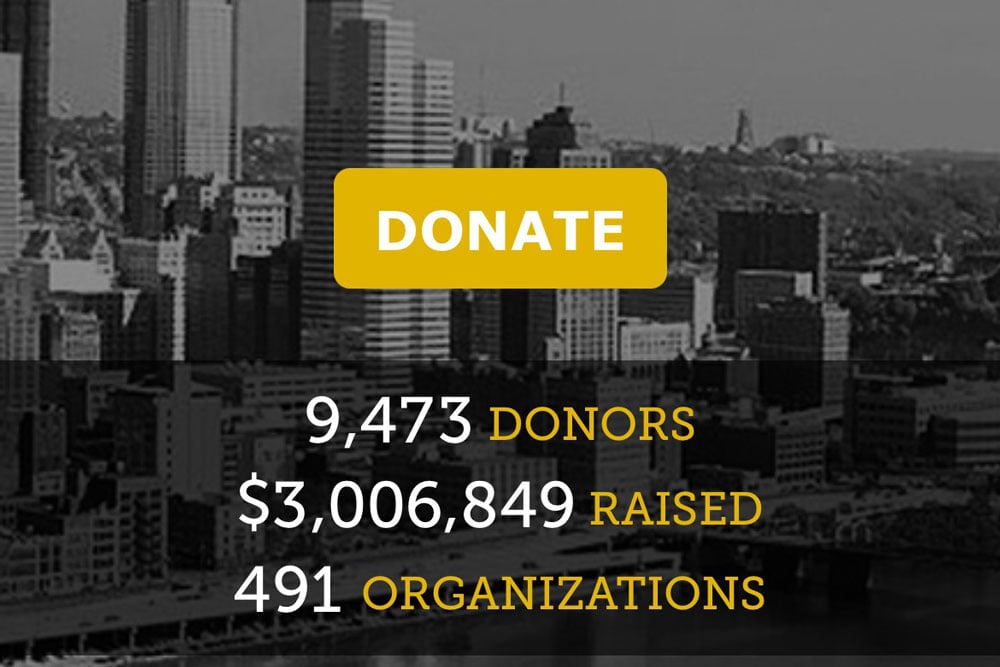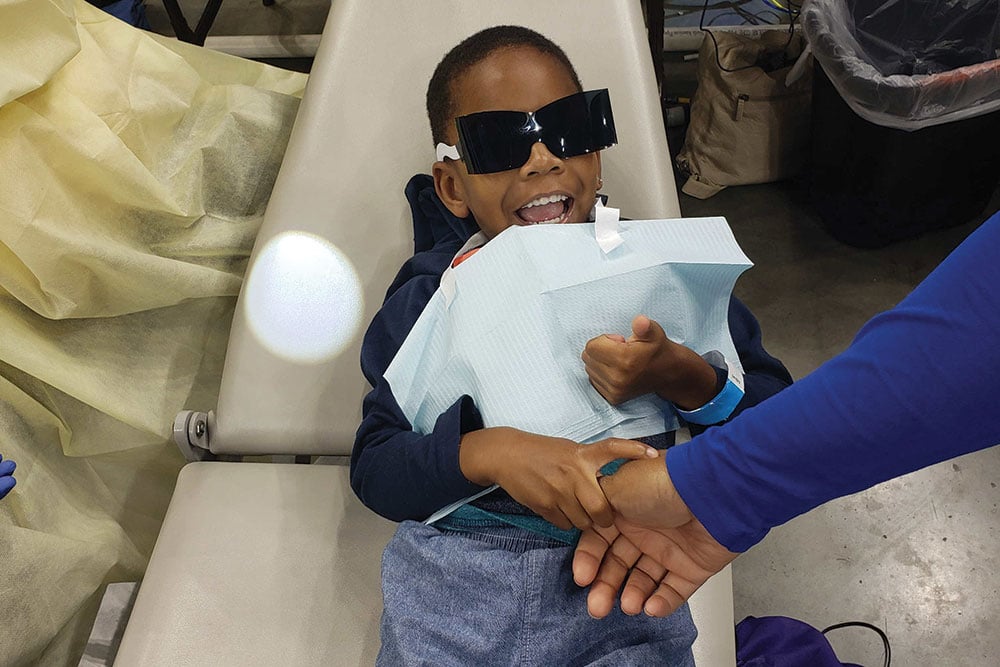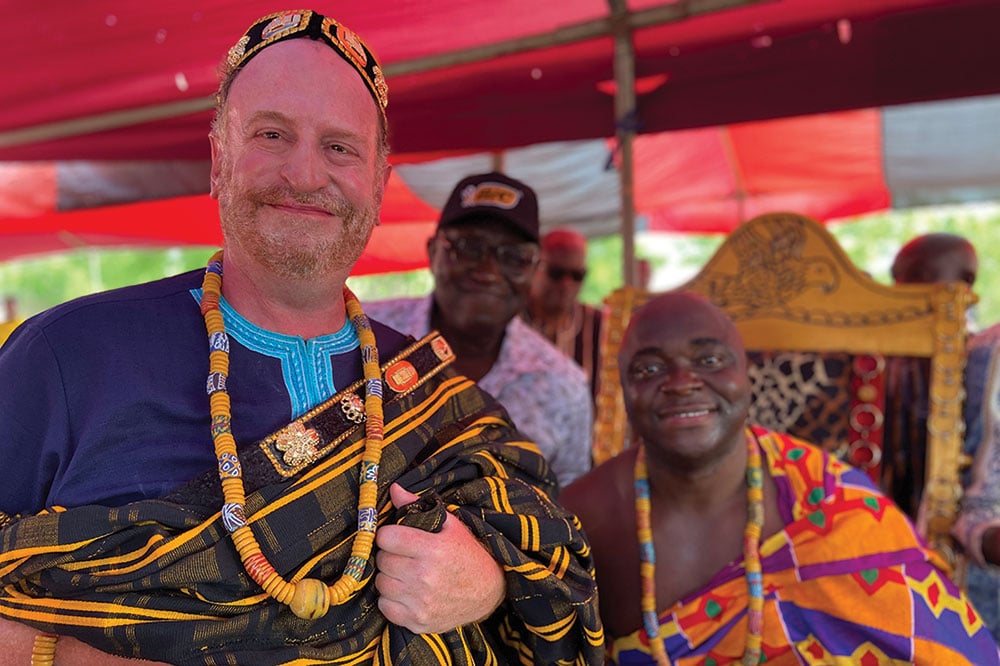How This Pittsburgher is Providing Hope for Ghana
Pittsburgh pediatrician Steve Greene works to build wells, libraries and computer labs in the African nation.

PITTSBURGH PEDIATRICIAN STEVE GREENE (LEFT) HAS BEEN WORKING TO BUILD LIBRARIES AND SCHOOLS IN AFRICA THROUGH HIS NONPROFIT, HOPE FOR GHANA, SINCE 2011 | PHOTOS COURTESY HOPE FOR GHANA
Steve Greene has been thinking a lot lately about retirement. He’s been a pediatrician for 31 years, a vocation he’s loved. He’s also at the helm of Hope for Ghana, a tax-exempt public charity he founded in 2011.
There will soon come a time when he’ll only be able to do one — and Hope for Ghana, he says, “is my passion.”
Greene’s first visit to the West African nation in 1986 was part of a summer medical mission trip, which he thought would be a once-in-a-lifetime opportunity. He was immediately taken by the warmth of the community and knew he would be returning, even if he didn’t know how or when.
For years, he visited to practice medicine. In late 2010, he accompanied his niece to an orphanage in the Volta Region, a multi-ethnic area next to the Republic of Togo. The 28 children there, Greene says, changed everything about how he saw their long-term needs. He found himself asking, “What can I sustainably give them in their life?” He realized he wanted his work to help “level the playing field, give them opportunities.”
That work became Hope for Ghana, of which Greene is the founder and president. The organization’s initial focus was on education, starting with building a small library with a computer lab at the orphanage. That led to a collaboration with a Ghanaian activist who brought Greene to schools, where he eventually built six libraries with computer labs, impacting children “in the thousands.”
Next, Hope for Ghana built entire schools. Rural communities, Greene says, have established educational systems and eager students but don’t have a government with the funding to build and maintain physical structures.
It was when the construction process began in 2017 that Greene learned about water engineering — being able to drill into the earth and find water seemingly out of nowhere.
Approximately 41% of Ghana’s 32.83 million citizens live in rural areas. One in 10 people, according to UNICEF, are farther than 30 minutes away from safe drinking water and another 11% have access only to contaminated water, which can transmit diseases such as dysentery, typhoid and cholera.
It takes only a few weeks and $5,000 to drill a hole, install a pump and create a reservoir of clean water for a community. “It’s affordable, it’s doable and it’s so immediately impactful,” Greene says.
Hope for Ghana is privately funded and also has partnerships with Pittsburgh organizations including the Brother’s Brother Foundation and Grace Life Church, which has locations in Monroeville and Ross.
Greene takes three lengthy trips to Ghana per year. He relies on a team on the ground managed by Senyo Gbormittah, the vice president of operations, to keep the work going. Ghanaian communities and politicians directly contact Hope for Ghana to request projects, which the organization prioritizes based on need.
A criticism of water-based charities is that people build wells then never return; without the financial means to fix a mechanical problem, communities become once again without water. Greene says Hope for Ghana is responsible for all maintenance across the 50 villages they have helped so far.
Toward its original mission, the organization recently broke ground on its fourth school. The third opened not long before and already has 250 students and counting.
“I think the future is bright. With the right funding, I would love to do three schools a year,” says Greene. “I’d love to bring thousands of these water projects — so truly, every child and every family has drinking clean water.”



















